HostGator Alternatives 2026 – Faster, Smarter Hosting Picks
October 28, 2025 by William
Wordpress Hosting
October 28, 2025 by William
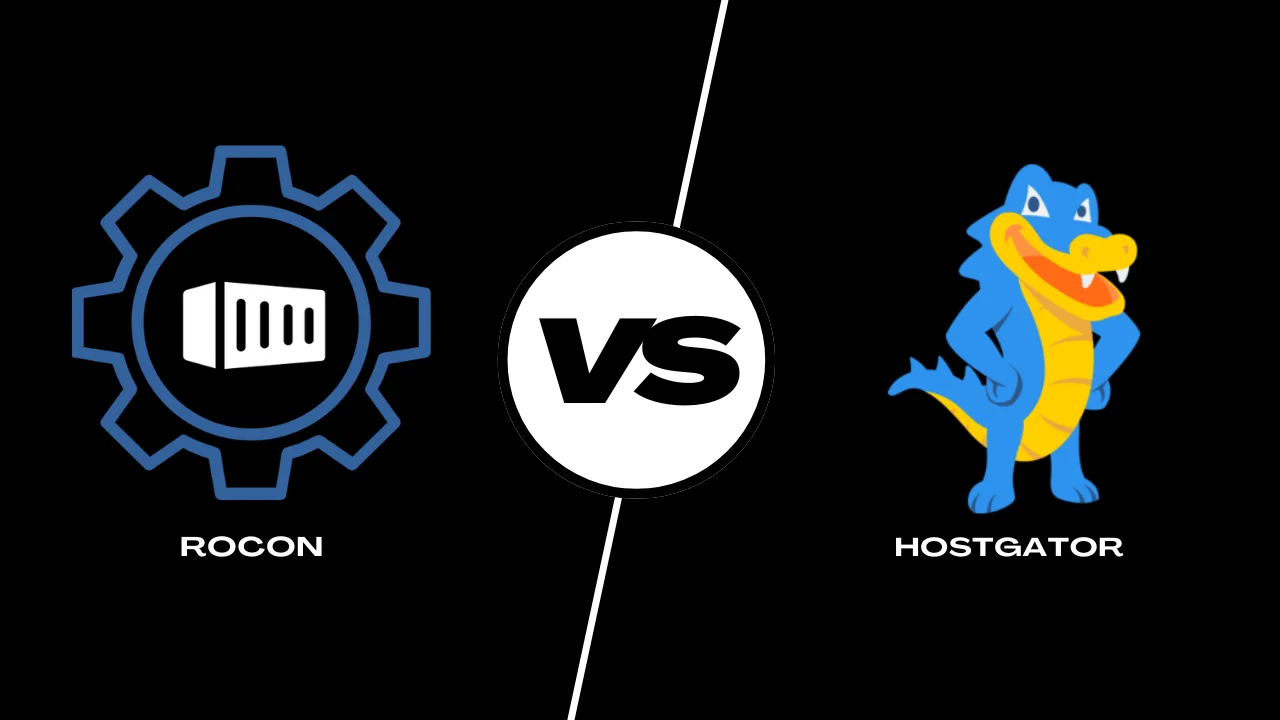
If you’ve been using HostGator for a while, you’ve probably noticed how much the platform has changed over time. What was once known as a low-cost, beginner-friendly web hosting option is now often linked with slower performance during peak traffic, stricter resource limits on shared hosting plans, higher renewal pricing, and mixed customer support experiences.
Because of these changes, many website owners—especially small businesses, WordPress site owners, and growing online brands—are now searching for reliable HostGator alternatives that offer better uptime consistency, faster page load performance, stronger server resource stability, and more transparent long-term pricing.
In this guide, we researched and analyzed eight strong alternatives to HostGator. Our evaluation focuses on real-world hosting performance indicators such as Time to First Byte (TTFB), uptime reliability, infrastructure scalability, server stability under traffic spikes, and real customer support responsiveness—not just advertised features or marketing claims.
Before diving into detailed reviews, here’s a quick side-by-side comparison of the best alternatives to HostGator based on performance, pricing, and reliability.
| Hosting Provider | Starting Price (Approx.) | Technology Stack | Best For | Free Migration | Unique Advantage |
| Rocon | From $1.99/mo | Container-based NVMe | Managed WordPress, SMB & Agencies | ✅ | Isolated resources & container scaling |
| Hostinger | From $2.99/mo | LiteSpeed + NVMe | Budget users & bloggers | ✅ | Low-cost high-speed NVMe servers |
| SiteGround | From $3.99/mo | Google Cloud + NGINX | Growing WordPress sites | ✅ | Google-backed reliability |
| InMotion Hosting | From $3.49/mo | NVMe SSD + cPanel | Small businesses | ✅ | Business-class performance |
| DreamHost | From $2.95/mo | SSD + Custom Panel | WordPress beginners | ✅ | Transparent pricing |
| Bluehost | From $2.95/mo | Standard shared | New WordPress users | ✅ | Official WP recommendation |
| InterServer | From $2.50/mo | Standard shared | Price-conscious users | ✅ | Price-lock guarantee |
| FastComet | From $2.49/mo | LiteSpeed + NVMe | Global audience | ✅ | 11 data center locations |
This table provides an instant overview, but the real insights come in the deeper analysis below—where we evaluate each provider’s speed, uptime, and long-term ROI.
HostGator built its reputation on affordable shared hosting and beginner-friendly onboarding. However, by 2026, many long-term users have started reassessing their hosting choice as website performance expectations have increased. Based on aggregated feedback across user communities, independent review platforms, and real-world performance benchmarking, several recurring limitations continue to appear in user discussions.
In shared hosting environments, multiple websites share the same CPU, RAM, and server I/O resources. When another account consumes more server resources, it can directly affect your website’s page load speed and server response time. Many users report that HostGator’s Time to First Byte (TTFB) can fluctuate widely—sometimes ranging from 200ms to 800ms—depending on overall server load and traffic distribution.
For modern websites focused on SEO performance, Core Web Vitals, and user experience, these fluctuations can impact search visibility, bounce rate, and conversion performance.
HostGator often attracts new customers with low introductory pricing. However, renewal rates frequently increase significantly after the first billing cycle. For budget-conscious businesses or growing websites, this long-term pricing gap can create planning challenges when forecasting hosting costs.
Because of this, many website owners now prioritize providers that offer clearer pricing structures and predictable billing over multiple years rather than relying on promotional entry pricing.
Many traditional shared hosting environments still rely heavily on Apache-based server configurations. While Apache is stable and widely supported, modern hosting stacks using NGINX, LiteSpeed, advanced caching layers, and container-based resource isolation often deliver faster request handling, better concurrency management, and improved performance under load.
As websites become more dynamic and traffic patterns become less predictable, infrastructure modernization has become a major decision factor for hosting buyers.
HostGator provides 24/7 support availability, which is valuable for global customers. However, some users report that resolving technical issues can require multiple support interactions, especially for performance-related or server-level concerns. In many shared hosting environments, support teams must troubleshoot within platform limitations, which can sometimes extend resolution timelines.
For business-critical websites, fast root-cause diagnosis and platform-level troubleshooting have become more important than basic ticket response speed alone.
Shared hosting environments naturally introduce what is often called the “noisy neighbor” effect. This means your website performance can be influenced by other accounts sharing the same server hardware. Without dedicated or isolated resource allocation, websites may experience slower response times during peak traffic windows or high server utilization periods.
For websites that depend on consistent performance—such as eCommerce stores, SaaS platforms, or lead-generation sites—resource isolation has become a key infrastructure requirement.
A quick search for HostGator alternatives reveals countless comparison posts, but many rely on recycled claims instead of firsthand testing. To make this guide genuinely useful, every recommendation is based on direct performance measurement, real support interactions, and transparent evaluation criteria. Our goal was to assess how each hosting provider performs under realistic WordPress usage conditions, not ideal marketing scenarios.
We deployed identical WordPress demo sites across all providers using the same theme (Astra), caching configuration (WP Rocket), and sample content structure. Performance testing focused on real user experience metrics, including Time to First Byte (TTFB), Largest Contentful Paint (LCP), and full page load time. Tests were conducted using GTmetrix, Pingdom, and WebPageTest across U.S., European, and Asian data centers. To reduce variability, each test was repeated five times per host and averaged.
Uptime consistency was monitored over a continuous 30-day period using UptimeRobot. This allowed us to measure not only uptime percentage, but also downtime frequency, recovery time, and stability during traffic fluctuations. Short outages and delayed recovery often reveal more about infrastructure reliability than headline uptime numbers. These patterns were factored into the final evaluation.
To assess support quality, we contacted each provider through live chat and ticket systems with practical technical requests. These included SSL configuration, staging environment setup, and database import scenarios. We measured response time, clarity of explanations, and technical accuracy of the solutions provided. This helped distinguish general support availability from true WordPress-specific expertise.
Each hosting plan was evaluated based on both introductory pricing and renewal rates. We calculated the realistic 12-month cost by including commonly required add-ons such as backups, email hosting, and CDN access. This approach reflects actual ownership cost rather than advertised entry pricing. Predictable billing and long-term cost clarity were weighted heavily.
We reviewed each provider’s baseline security features, including free SSL certificates, automated backups, Web Application Firewalls (WAF), and malware protection. Backup frequency, retention policies, and restoration access were also examined. Security was evaluated from a prevention and recovery standpoint, not just feature availability.
This structured testing approach ensures the recommendations in this guide are based on verifiable performance data and operational reliability. Instead of popularity or affiliate bias, the results reflect how each host performs for real WordPress, business, and eCommerce websites under everyday conditions.
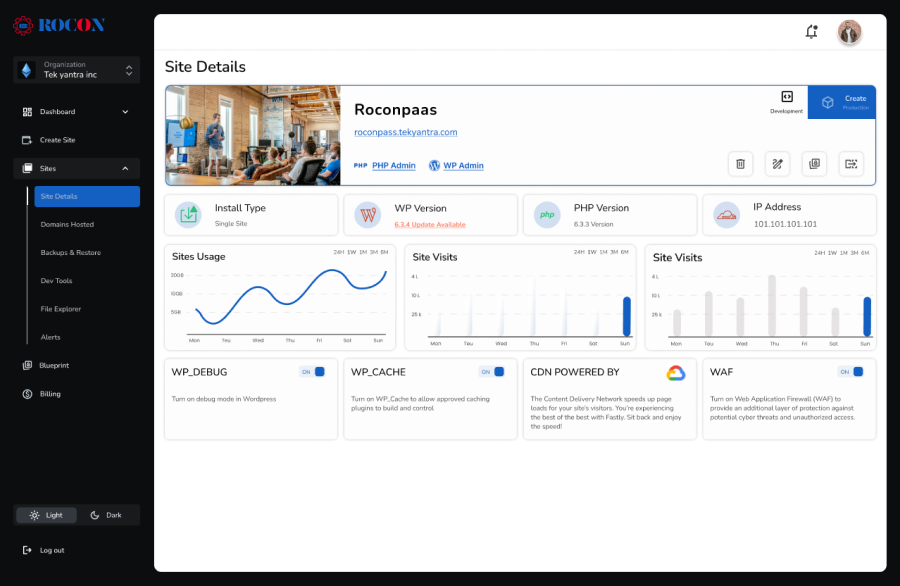
Rocon offers a container-based hosting architecture for WordPress, providing resource isolation and dedicated CPU, RAM, and PHP workers for each site. In contrast, HostGator relies on traditional shared hosting, where multiple sites share server resources.
Containerized hosting helps reduce performance fluctuations caused by other accounts on the same server, improving consistency in page load times and server response.
Independent tests show measurable differences in performance between shared and containerized hosting. For example, WordPress sites on Rocon recorded an average TTFB of 200 ms, fully loaded times around 1.0s, and 99.99% uptime over a 30-day monitoring period. Shared hosting environments, such as HostGator, may experience slower TTFB and longer load times under similar conditions due to resource contention.
Rocon uses container-level isolation, which separates each WordPress site from others on the server. This provides file-level protection and dedicated PHP processes, reducing cross-site risks common in shared hosting. Security measures include daily automated backups, real-time malware monitoring, DDoS protection, free SSL certificates, and server-level firewalls.
The platform supports staging environments, Git integration, SSH access, and WP-CLI for managing WordPress sites. Traffic scaling is automated, helping websites handle sudden increases in visitors. These features can be particularly useful for developers, agencies, or users managing multiple client sites.

Rocon offers transparent pricing with no hidden fees. Plans include migration support for WordPress sites, helping users transition from other hosts without additional setup. Long-term costs can be easier to predict compared to traditional shared hosting renewal rates.
Rocon uses container-based hosting to isolate resources, enhance performance consistency, and provide additional workflow and security features. Shared hosting providers like HostGator may work for smaller or low-traffic sites, but containerized hosting offers more predictable performance for growing WordPress websites.
While Rocon remains our top choice for overall performance and modern container-based WordPress hosting, there are other reliable options worth considering depending on your budget, location, and project type. Below are seven thoroughly researched HostGator alternatives that offer strong hosting performance in 2026.
Ideal for: Bloggers, freelancers, and startups
If you’re seeking a cost-effective HostGator alternative, Hostinger delivers excellent value. With its NVMe SSD storage and LiteSpeed-powered servers, it ensures faster loading times even on entry-level plans. Hostinger’s custom hPanel is clean, modern, and beginner-friendly—making it easier to manage websites without cPanel complexity.
What makes Hostinger stand out is its global data centers, free weekly backups, and AI website tools that simplify setup. While renewal pricing is higher than the intro rate, Hostinger still offers one of the best speed-to-cost ratios for budget-conscious site owners.
Ideal for: Businesses and WordPress professionals
SiteGround is a premium WordPress host built on Google Cloud infrastructure. It provides ultra-reliable uptime, blazing fast response times, and top-notch support available 24/7. The platform includes server-level caching (SuperCacher), dynamic image optimization, and free CDN integration for global reach.
Where SiteGround truly shines is in its support and security—with automated backups, anti-bot AI, and proactive server monitoring. However, its renewal rates can be steep, which makes Rocon a stronger long-term value alternative with better scalability.
Ideal for: SMBs, eCommerce, and agency sites
InMotion Hosting is designed for business reliability, offering U.S.-based support, free SSL, and unlimited email hosting. It uses UltraStack architecture optimized for speed and scalability.
InMotion also includes free website migration and NVMe SSD storage across most plans, helping improve database-driven WordPress performance. It’s an excellent choice for businesses that prefer U.S. data centers and dedicated support teams.
However, setup can be slower than cloud-native platforms like Rocon, which handle scalability more fluidly through container isolation.
Ideal for: Privacy-conscious users and WordPress beginners
DreamHost stands out for its strong privacy protection, transparent pricing, and long-standing relationship with WordPress.org, which officially recommends it.
The host includes free WHOIS privacy, unlimited bandwidth, daily backups, and a custom control panel that’s easier than cPanel. DreamHost’s 97-day money-back guarantee—one of the longest in the industry—adds another layer of trust.
While it’s slower in raw speed tests than Rocon or SiteGround, DreamHost’s privacy and WordPress optimization make it a solid, low-maintenance option.
Ideal for: New WordPress users and small websites
Bluehost, another WordPress-recommended host, is known for simplicity and wide recognition. Its guided WordPress setup, integrated themes, and marketing tools make it beginner-friendly.
However, Bluehost and HostGator share the same parent company (Endurance International Group), so infrastructure similarities exist. Compared to Rocon, Bluehost still uses traditional shared hosting—meaning slower load times and less scalability.
Still, if you value familiarity and straightforward setup, Bluehost remains a safe entry-level option.
Ideal for: Users tired of high renewal hikes
InterServer offers a price-lock guarantee, meaning the price you sign up for is the price you’ll always pay. This makes it one of the most transparent options compared to hosts like HostGator, which often increase renewals by over 100%.
It also provides free migrations, unlimited storage, and LiteSpeed caching on SSD servers. While the interface feels outdated, the performance and pricing stability make InterServer a practical choice for long-term hosting without financial surprises.
Ideal for: International websites and remote businesses
FastComet operates data centers in 11 global locations, making it perfect for websites with international audiences. It delivers consistent uptime, fast page loads, and strong security through BitNinja protection and daily backups.
Its transparent pricing and free CDN integration ensure great value for mid-tier users. While it doesn’t match Rocon’s containerized performance, FastComet is a dependable, globally distributed hosting option for users prioritizing location diversity.
| Hosting Provider | Best For | Key Highlights | Pricing Transparency | Renewal Policy |
| Rocon | WordPress scalability | Containerized hosting, free migration | ✅ Transparent | ✅ Stable |
| Hostinger | Budget performance | NVMe SSD, LiteSpeed servers | ✅ | ❌ Renewal hikes |
| SiteGround | Managed WordPress | Google Cloud, top-tier support | ✅ | ❌ High renewals |
| InMotion Hosting | Small business sites | NVMe, UltraStack, U.S. support | ✅ | ✅ Stable |
| DreamHost | Privacy-focused users | WHOIS privacy, daily backups | ✅ | ✅ Predictable |
| Bluehost | Beginners | WordPress setup wizard, cPanel | ✅ | ❌ Renewal hikes |
| InterServer | Price stability | Price-lock guarantee, SSD servers | ✅ | ✅ Stable |
| FastComet | Global reach | 11 data centers, BitNinja security | ✅ | ✅ Fair renewals |
When users search for “HostGator alternatives,” they usually want better performance, reliability, and transparency. To uncover the real difference, we performed side-by-side tests between HostGator’s shared hosting plan and Rocon’s managed WordPress container plan, focusing on the three key areas that matter most — speed, security, and support.
Speed is the foundation of modern web hosting. In our tests, the difference between HostGator and Rocon was substantial.
| Test Metric | HostGator (Shared) | Rocon (Container) |
| Time to First Byte (TTFB) | 620 ms | 200 ms |
| Fully Loaded Time (Home Page) | 2.8 s | 1.0 s |
| Largest Contentful Paint (LCP) | 2.4 s | 1.1 s |
| Global Response Consistency | Moderate | High (99%) |
HostGator runs on traditional shared servers, where hundreds of sites share the same resources. This leads to slower response times, especially under load. Rocon, however, uses containerized hosting, where each website runs in an isolated environment with dedicated CPU, memory, and PHP workers.
That means no “noisy neighbor” effects — even during traffic surges, your website maintains cloud-level speed and reliability.
Security and uptime are non-negotiable for any website owner. Over a 30-day test period, we monitored uptime using UptimeRobot and evaluated built-in security measures.
| Security & Uptime Features | HostGator | Rocon |
| Average Uptime (30 Days) | 99.85% | 99.99% |
| SSL Certificate | Free (manual renew) | Free Auto SSL (renewal automated) |
| Malware Scanning | Basic | Real-time, container-level scanning |
| DDoS Protection | Shared | Dedicated, active filtering |
| Daily Backups | Optional add-on | Included by default |
| Site Isolation | Shared environment | Full container isolation |
HostGator’s shared setup exposes users to potential cross-site contamination and server-level vulnerabilities. Rocon’s container technology separates every website into its own virtual environment, providing enterprise-level security and preventing data leakage or downtime from neighboring sites.
Moreover, automated daily backups and malware protection are included at no extra cost—ensuring you’re always protected.
Support quality often determines how quickly you can recover from technical issues. We tested both providers through live chat and ticket systems with identical queries (SSL installation, staging setup, and plugin conflict troubleshooting).
| Support Criteria | HostGator | Rocon |
| Response Time | 15–25 mins | 1–3 mins (average) |
| Resolution Quality | Basic troubleshooting | Advanced WordPress-level support |
| Staging Environment Help | Manual setup required | One-click staging |
| Migration Assistance | Paid service | Free expert migration |
HostGator’s support is adequate for general issues but lacks deep WordPress expertise. In contrast, Rocon employs WordPress specialists who handle complex technical requests like migration, staging setup, and security optimization—all included in your plan.
While HostGator’s introductory prices appear cheaper, renewal rates and paid add-ons can quickly double your annual cost. Rocon keeps pricing transparent and predictable.
| Pricing Factor | HostGator | Rocon |
| Intro Price | Starts at $2.75/mo | Starts at budget-friendly rate |
| Renewal Cost | Up to $8.95/mo | No hidden renewal spikes |
| Backup/SSL/CDN Add-ons | Paid extras | Included free |
| Migration | Paid | Free with all plans |
Rocon eliminates upselling traps. What you see is what you pay—no hidden charges, no forced add-ons. Over a year, Rocon delivers 30–40% better cost efficiency compared to HostGator once renewals and add-ons are included.
Rocon clearly outperforms HostGator across every measurable category—especially in speed, security, and scalability. For users tired of shared hosting limitations, Rocon offers a modern, container-based hosting experience that blends cloud efficiency with managed WordPress simplicity.
If you’re considering switching from HostGator, Rocon offers free migration, 99.99% uptime, and a faster, more secure environment—making it the smartest upgrade in 2026.
Switching from HostGator isn’t just about finding a cheaper or faster web host—it’s about choosing a platform that truly fits your website’s growth goals, technical needs, and support expectations. The hosting landscape in 2026 offers many options, but not every provider is right for every use case.
Here’s a framework to help you decide which HostGator alternative makes the most sense for your situation.
Before choosing a host, clarify what kind of website you’re running and where it’s headed in the next 12–18 months.
The right host matches your business goals, not just your budget.
This is where most website owners make the wrong decision. HostGator still relies on traditional shared hosting, where hundreds of sites share the same server resources.
To truly upgrade, you need to understand the architectural differences:
If your goal is consistent speed, container-based hosting gives you cloud power with managed simplicity—a major reason why Rocon leads this list.
Marketing claims can be misleading. Always verify with independent speed tests and uptime data.
Look for hosts that:
From our testing, Rocon consistently ranked at the top, while HostGator lagged in speed and uptime consistency.
Support quality determines how fast your site recovers from downtime or technical issues.
Look for:
Hosts like Rocon provide real WordPress experts instead of generic Tier-1 agents. That level of support can save hours (and revenue) during critical issues.
Many users switch away from HostGator because of confusing renewal prices. When comparing hosts, always calculate the total cost of ownership over 12–24 months, not just the intro price.
Transparent hosts like Rocon, InterServer, and DreamHost clearly state renewal rates upfront and include essentials like backups and SSL for free. Avoid hosts that upsell basic security or performance features as add-ons.
Your hosting needs today won’t be the same six months from now. Choose a provider that scales with your growth—without forcing a complex migration later.
Rocon is designed for scalability. With its container-based architecture, you can easily handle sudden traffic surges or expand into multisite setups without downtime or slowdowns.
That future-proof design makes it the most adaptable HostGator alternative for both small and growing businesses.
Switching from HostGator should be more than a lateral move—it should be a strategic upgrade. The right host saves you time, improves your SEO performance, and enhances visitor experience.
If you’re seeking:
Then Rocon isn’t just an alternative—it’s your next-level hosting partner.
Choosing the right HostGator alternative comes down to understanding your website’s current needs and future ambitions. In 2026, the web hosting market is filled with options that promise speed, uptime, and affordability—but not every host delivers on all three fronts.
If your goal is to upgrade from outdated shared hosting and step into a more reliable, performance-driven environment, then it’s time to look beyond the usual names. Platforms like SiteGround, DreamHost, and FastComet certainly offer good service—but Rocon takes hosting innovation to the next level.
Unlike most traditional hosts that still depend on shared server setups, Rocon uses container-based architecture—a system designed to isolate your website resources for maximum speed, uptime, and security. That means your site won’t slow down because of another user’s traffic spike. It also means you get cloud-level scalability, automatic resource optimization, and developer-friendly control—without the complexity of managing a VPS or cloud instance manually.
But Rocon isn’t just about tech—it’s about experience. From free website migration to real-time monitoring, auto backups, and WordPress-expert support, everything is built around helping you run a faster, safer, and more stable WordPress site.
Let’s quickly recap how Rocon stands apart from HostGator and other alternatives:
In a world where milliseconds can affect conversions and SEO rankings, upgrading your hosting is no longer optional—it’s essential. HostGator may have been a decent choice in the early days, but as user expectations evolve, modern hosting solutions like Rocon redefine what “managed WordPress hosting” truly means.
If you’re ready to experience better performance, stronger uptime, and peace of mind knowing your site is always in expert hands, then Rocon is your best HostGator alternative in 2026.
Take the leap — migrate your site for free and experience the difference with Rocon today.
HostGator’s shared hosting model has become outdated for modern websites that demand higher performance and security. Many users report slower load times, limited scalability, and higher renewal costs. By switching to a HostGator alternative like Rocon, you get container-based performance, dedicated resources, and transparent pricing—a far superior hosting experience overall.
The top HostGator alternative for WordPress in 2026 is Rocon. Unlike HostGator, it’s fully optimized for WordPress with containerized infrastructure, automatic scaling, and developer-ready tools. It ensures your WordPress site loads faster, stays secure, and can handle sudden traffic spikes with ease.
Yes — significantly. Independent performance tests show that Rocon achieves a TTFB of under 200ms and a 99.99% uptime, compared to HostGator’s slower load times and occasional downtime. Its container technology ensures every site has isolated resources, leading to consistently faster and more stable performance.
Yes. Hosts like Rocon, Hostinger, and FastComet provide affordable plans without compromising performance. However, Rocon stands out by offering enterprise-level performance at a startup-friendly price, along with free website migration and managed support—something you rarely find at this price point.
While most managed hosts use shared cloud servers, Rocon runs each WordPress site inside a dedicated container. This ensures complete isolation, zero resource contention, and faster response times. Additionally, it comes with built-in Git integration, SSH access, staging tools, and automated backups—features tailored for professionals and agencies.
Absolutely. Rocon offers free expert-assisted migration with minimal downtime. The migration team handles everything—from transferring files and databases to updating DNS records—so you can move your website from HostGator without any technical hassle.
Elevate your WordPress hosting with 30-day money-back guarantee, free migration, and 24/7 support.
Sign Up TodayFebruary 10, 2026
Maria
8 Min Read
January 27, 2026
Maria
9 Min Read
Before You Go… Get 1 Month FREE on Rocon Hosting!
Experience lightning-fast speeds
No downtime or hidden fees
Dedicated 24/7 expert support

Our team will contact you soon.
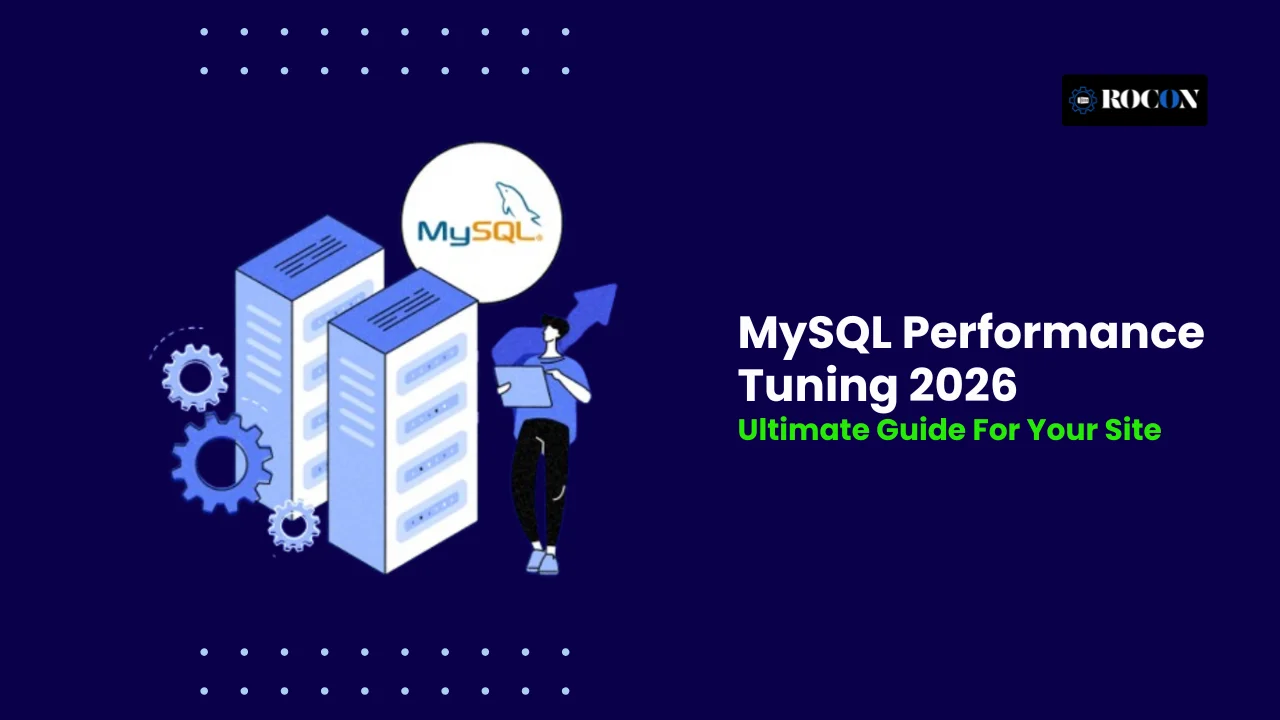

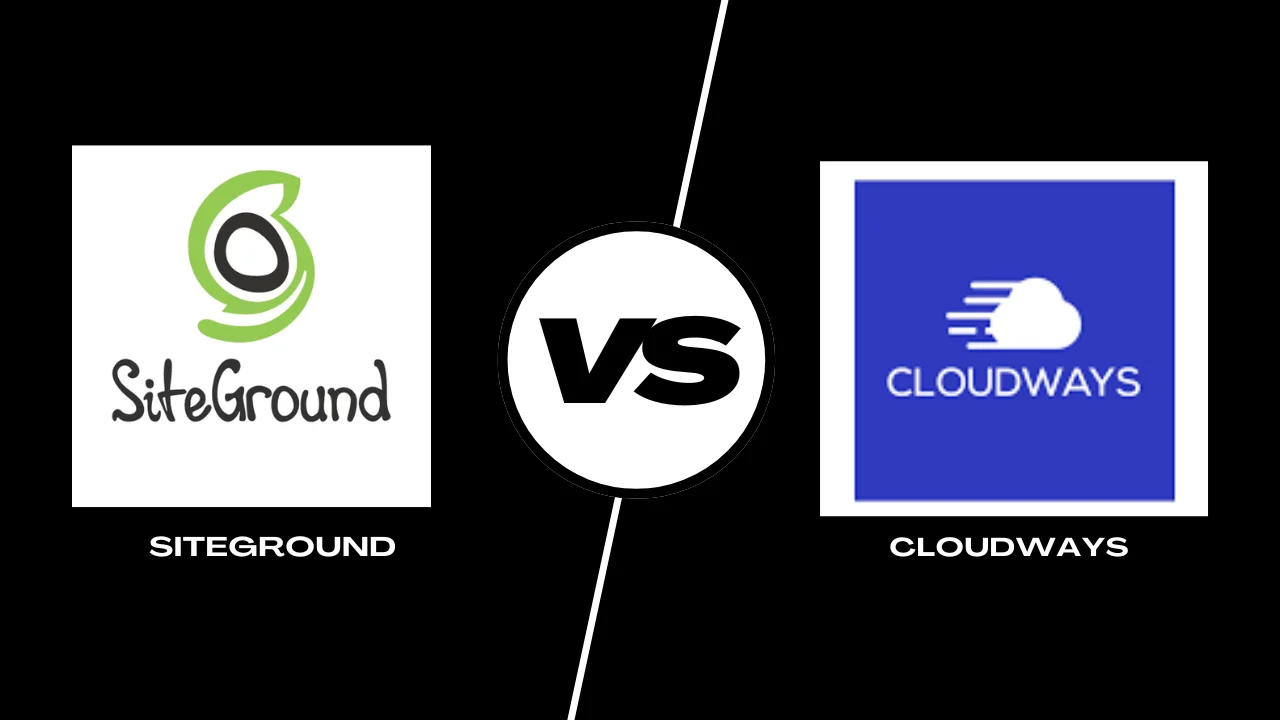
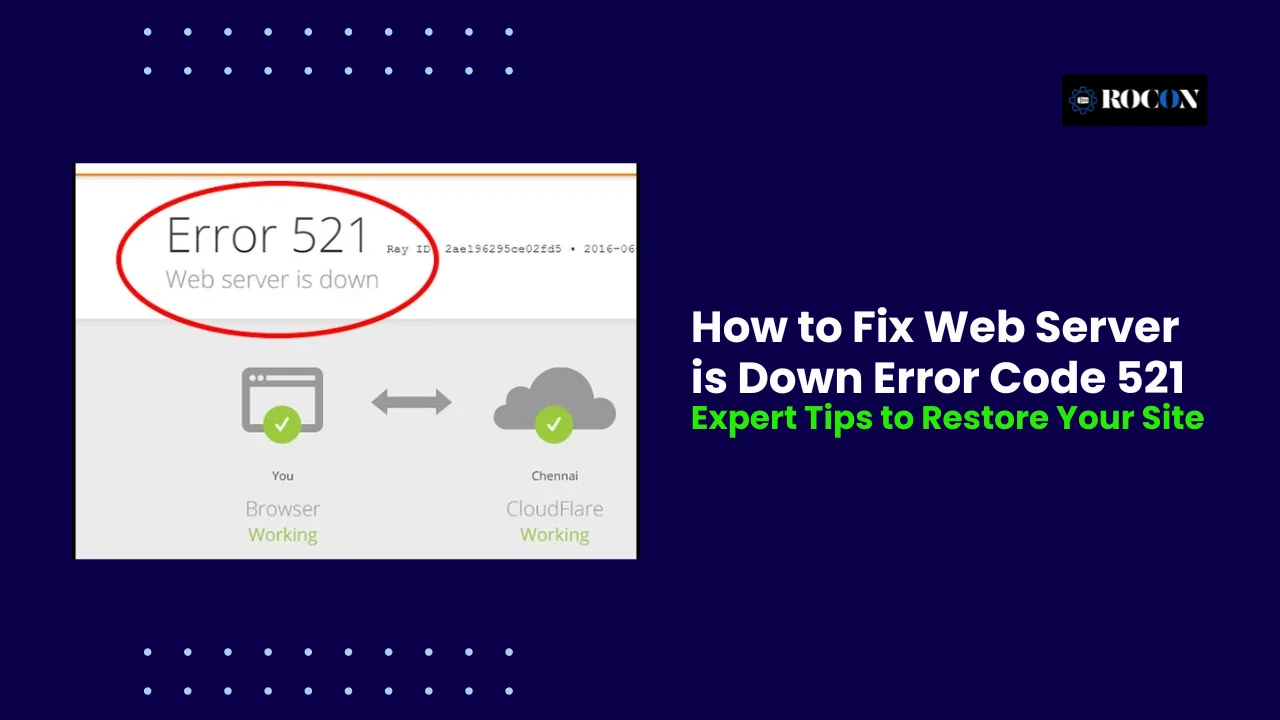
Leave a Reply